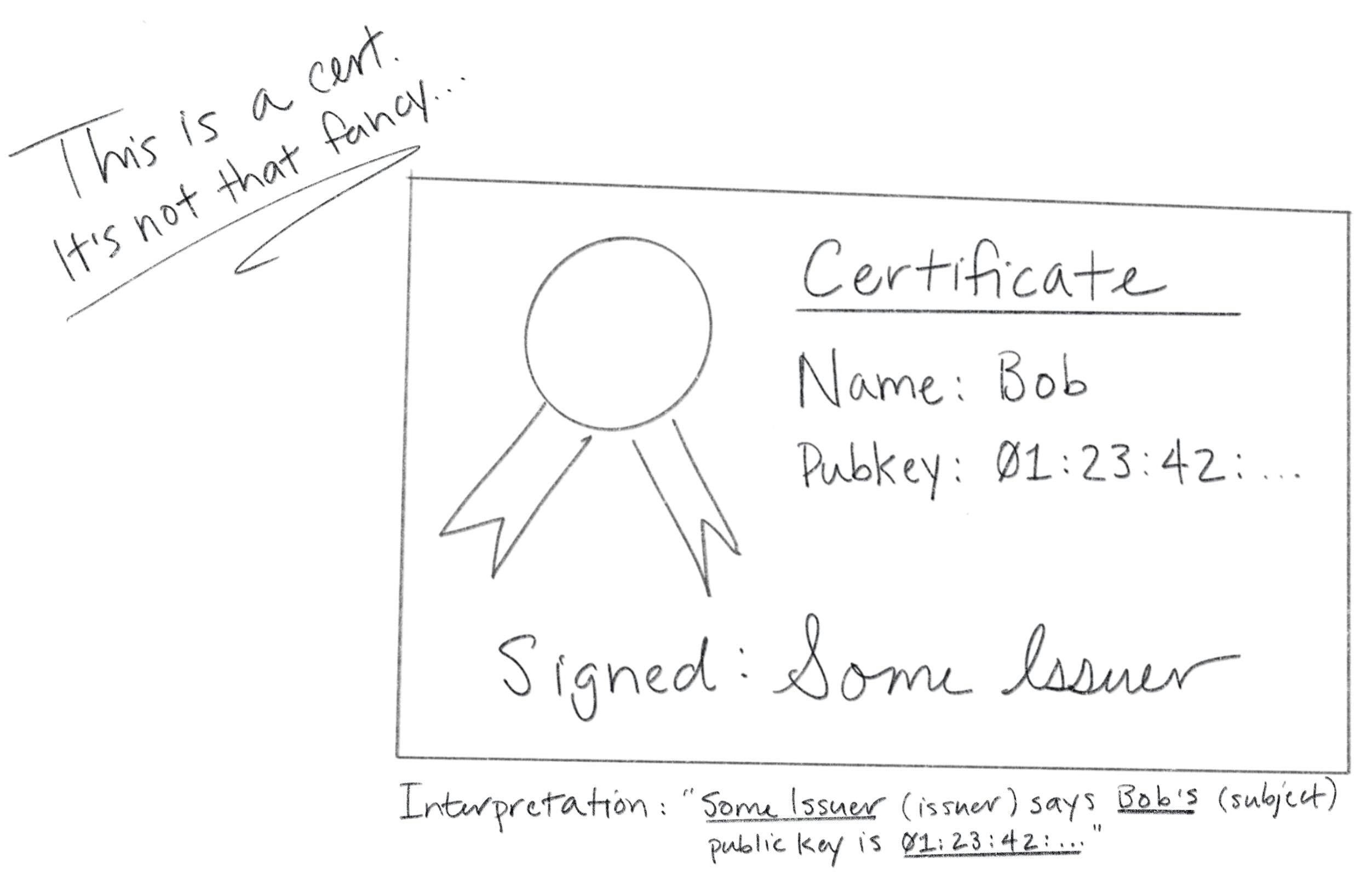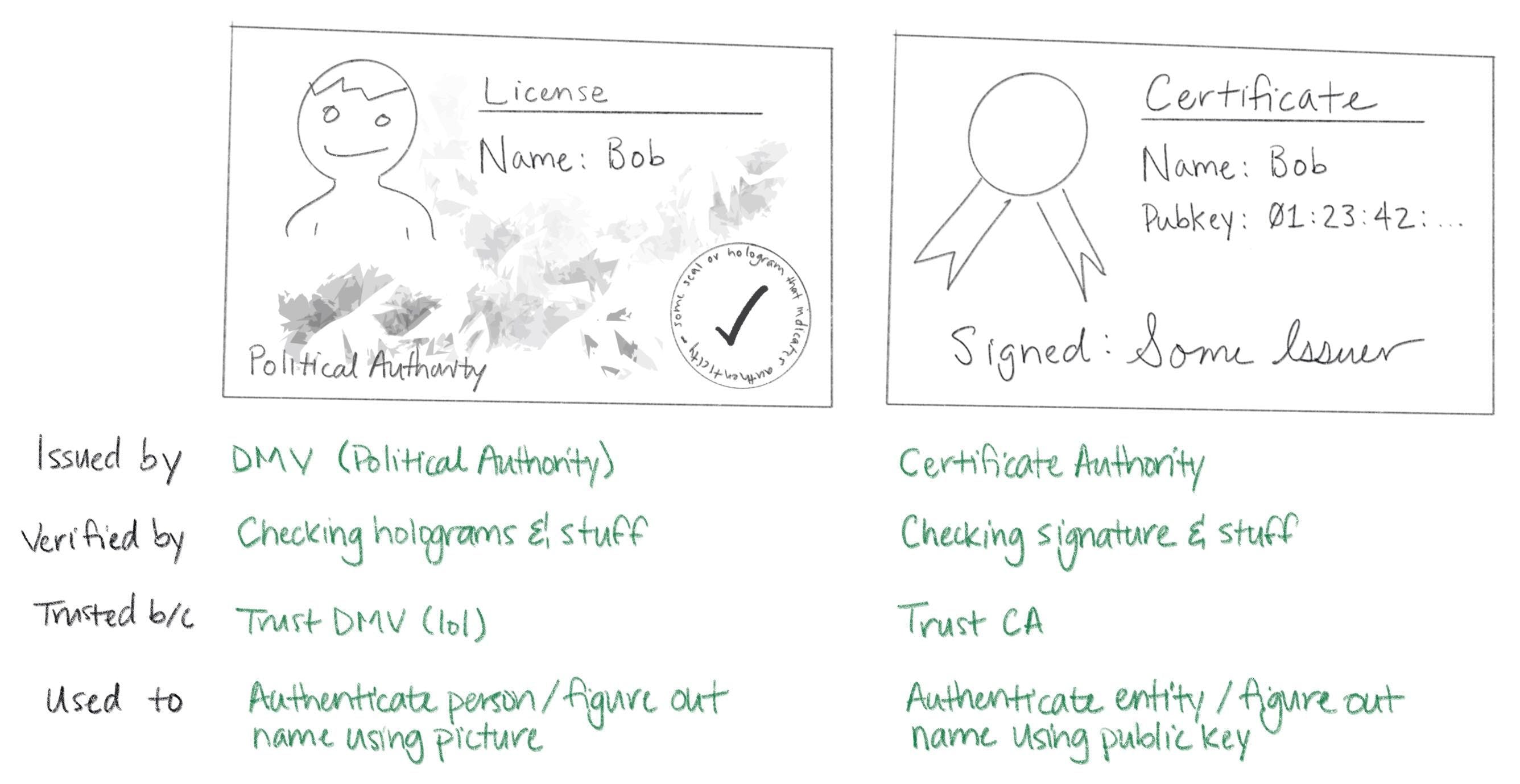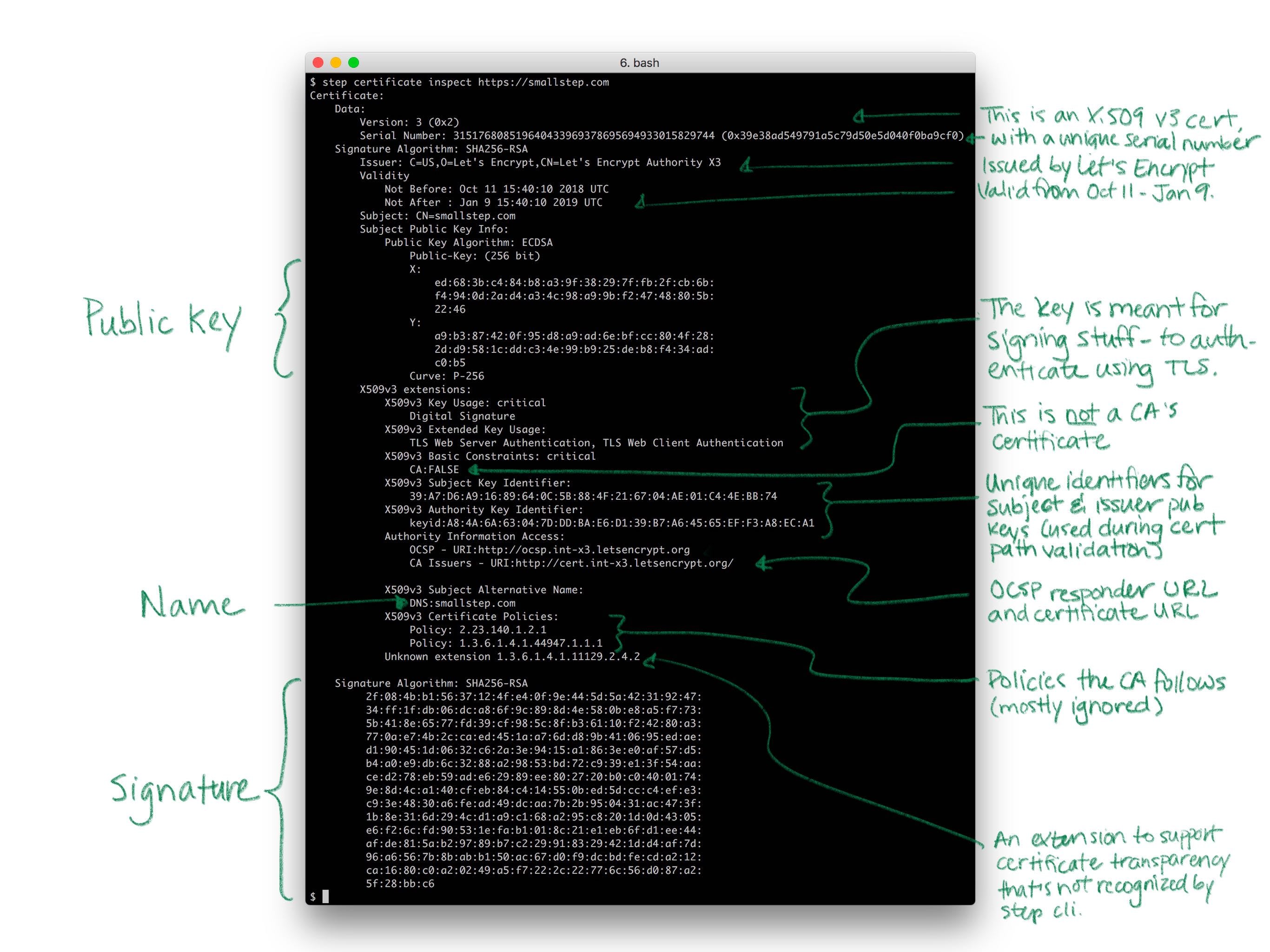Certificates As Driver's Licenses
What if you don't already know my public key? That's what certificates are for.
Certificates are fundamentally really simple. A certificate is a data structure that contains a public key and a name. The data structure is then signed. The signature binds the public key to the name. The entity that signs a certificate is called the issuer (or certificate authority) and the entity named in the certificate is called the subject.
If Some Issuer signs a certificate for Bob, that certificate can be interpreted as the statement: "Some Issuer says Bob's public key is 01:23:42...".This is a claim made by Some Issuer about Bob. The claim is signed by Some Issuer, so if you know Some Issuer's public key you can authenticate it by verifying the signature. If you trust Some Issuer you can trust the claim. Thus, certificates let you use trust, and knowledge of an issuer's public key, to learn another entity's public key (in this case, Bob's). That's it. Fundamentally, that's all a certificate is.

Licenses As Authentication
Certificates are like driver's licenses or passports for computers and code. If you've never met me before, but you trust the DMV, you can use my license for authentication: verify that the license is valid (check hologram, etc), look at picture, look at me, read name. Computers use certificates to do the same thing: if you've never met some computer before, but you trust some certificate authority, you can use a certificate for authentication: verify that the certificate is valid (check signature, etc), look at public key, "look at private key" across network (as described above), read name.

Let's take a quick look at a real certificate:

Like a driver's license, there's other stuff in certificates. Licenses say whether you're an organ donor and whether you're authorized to drive a commercial vehicle. Certificates say whether you're a CA and whether your public key is supposed to be used for signing or encryption. Both also have expirations.
There's a bunch of detail here, but it doesn't change that fundamentally, a certificate is just a thing that binds a public key to a name.